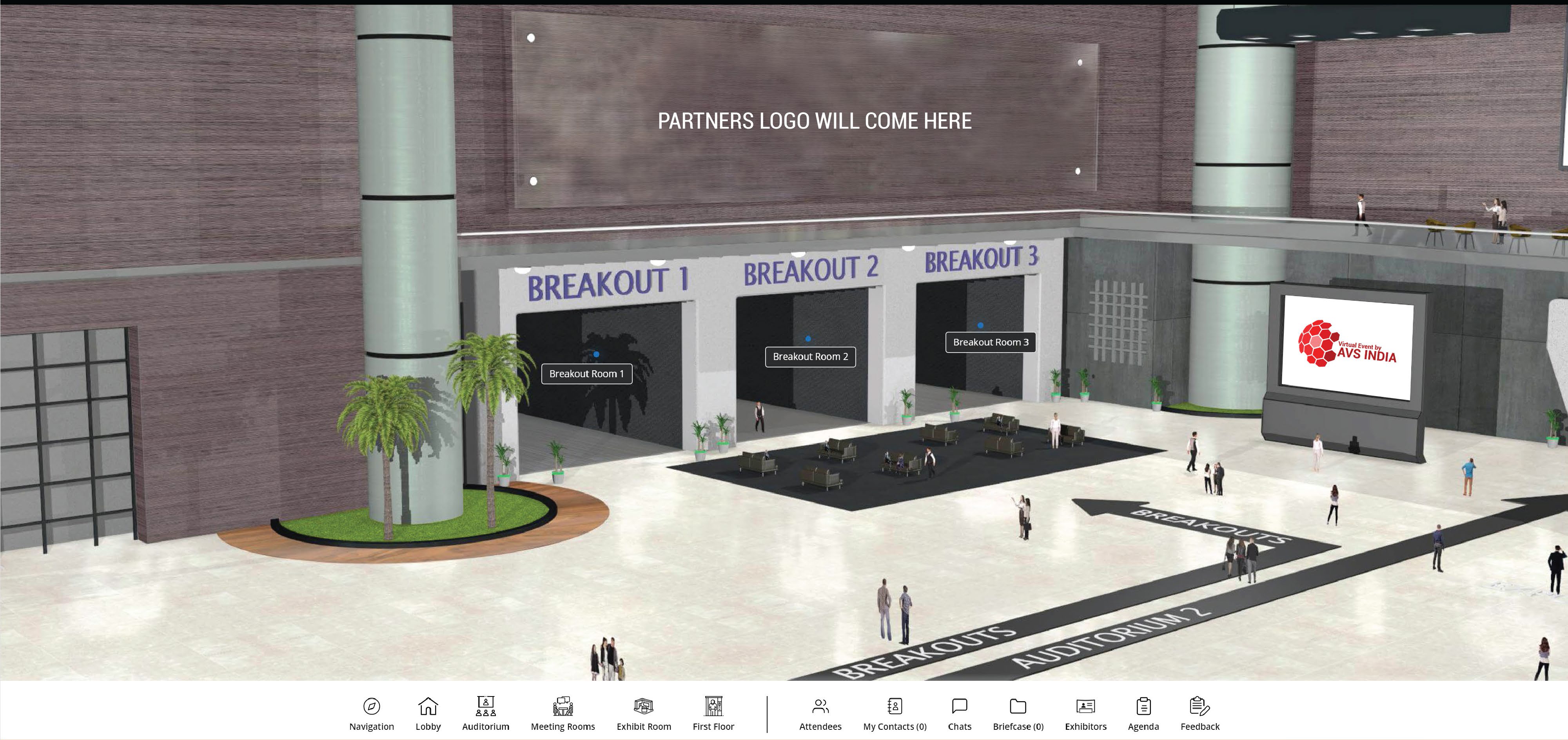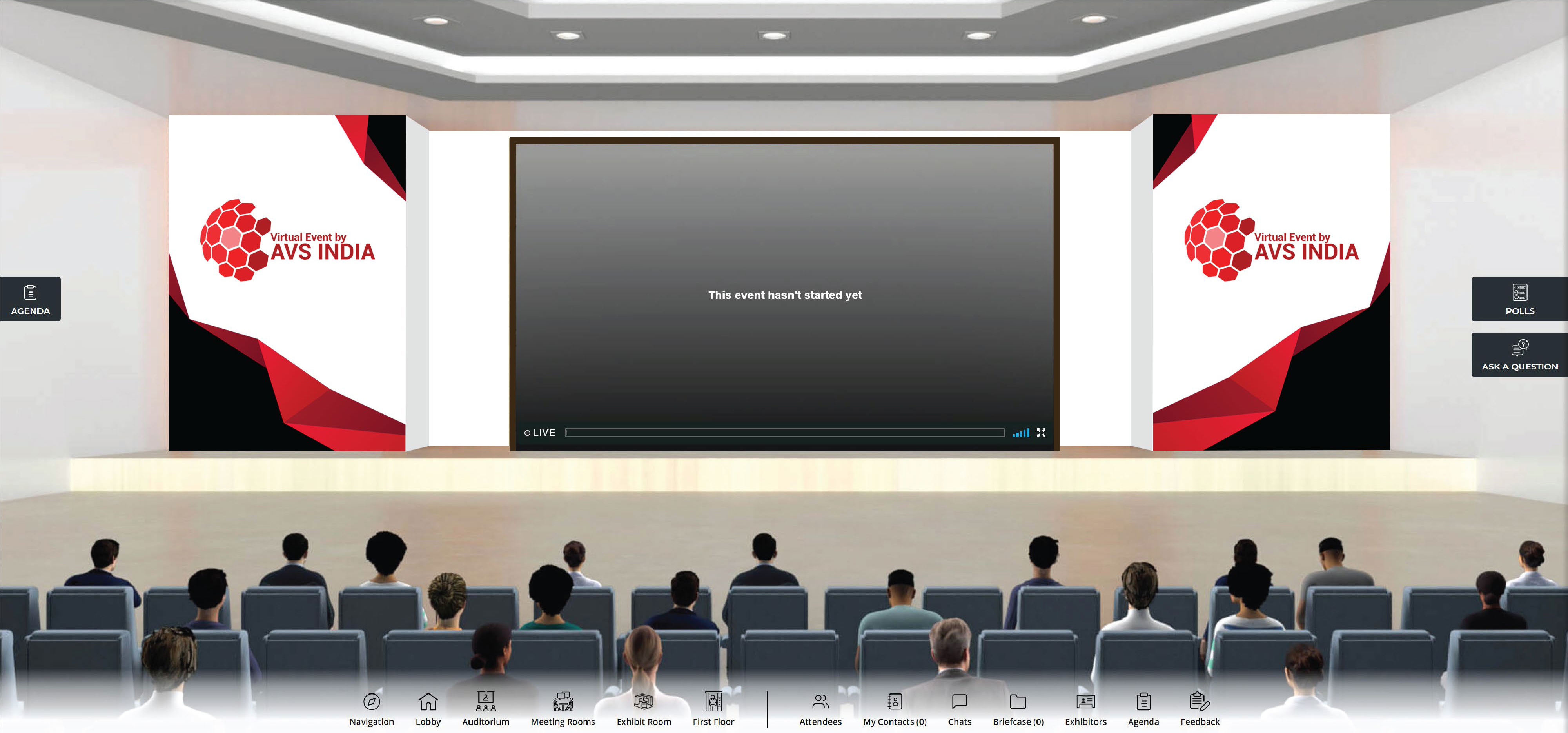Host and plan the perfect virtual conference with us
By AVS IndiaVirtual conferences are a great way to connect with your clients and partners. They allow you to interact with your team and can be used for business-related or personal reasons. Thanks to the global pandemic, in 2023, there are several ways you can organize virtual conferences.
Organizing a virtual conference can be tricky, but it's important to get it right. These conferences have become a very common way to get the word out about your company, product, or service. But how do you make sure that your next virtual conference is as successful as it can be? Let’s get our thinking caps on and go straight ahead on how to plan for organizing a once-in-a-lifetime virtual event.
Planning your virtual events in 2023
Organizing virtual conferences in 2023 is going to be a lot like organizing them in the past—but with a few new tricks up your sleeve. To get you started, here are some tips for promoting engagement and interaction at your virtual conference in 2023.
Video conferencing requires a totally different kind of preparation when compared to offline events or conferences, but it also has some benefits: you can use video conferencing equipment such as Skype for Business or Zoom, Google meet, and teams app - which allows participants to see each other's face rather than just hear their voices; video conferencing platforms offer many options for running meetings, and participants won't need expensive equipment like computers and software when using this option because all they need is one device that supports video conferencing technology (such as a mobile phone).
Here are some tips for organizing virtual conferences in 2023:
1. Promote engagement and interaction among participants - You want people who are not only interested in attending but also excited to be there. This means making sure everyone has a chance to ask questions and share their expertise. It also means giving them opportunities to collaborate by sharing ideas and brainstorming solutions together. Send out reminders as far in advance as possible—this will help prevent last-minute cancellations or changes to participants' schedules.
Make sure you have enough time for your attendees. You'll want to give them enough time to learn about the event and ask questions. As you begin planning your virtual conference, take note of whom you're speaking with—their preferences, their interests, their hobbies, etc.
This will help you provide them with information that meets their needs and interests. When it comes time to promote engagement and interaction during the event itself, use social media platforms like Facebook, Twitter, Instagram, and Snapchat to broadcast information about the event directly to your audience/user base.
2. Take note of audience/user details for future outreach efforts - This allows you to tailor your content to specific audiences in order to build relationships with them and continue engaging with them long after the conference ends—which is important because, in 2023, our attention spans are getting shorter by the minute!
You can also use tools like Slack to communicate directly with people whom RSVP'd for your event—even if they don't attend in person! By integrating these tools into your overall strategy for organizing a virtual conference (and by making sure those tools are integrated into all communications channels), you should be able to successfully promote engagement throughout the course of an event while still being able to provide valuable information back to attendees at any time during the day or night through online communications channels like email or text messaging
3. Think about how you can promote engagement and interaction during the event itself - For example, if there's a Q&A session at the end of the day, consider having attendees submit questions via Twitter or email beforehand so that they can be answered during the event.
Don't forget to include the room and equipment needed for your event. If you're planning on streaming video or audio, make sure that this is all set up before your start the event.
4. Create a Feedback Survey for Attendees and Guest Speakers - Your virtual conference attendance will depend on the quality of your content, the experience of your audience, and the engagement of your speakers. In order to get the most out of your virtual conference, it's important to gather feedback from attendees and guest speakers at the end of each event.
This can help you improve future events by making sure that you know what works well, what needs improvement, and how you can make each event better in the future.
The world is changing. Virtual conferences have become the norm, and the need for organizational strategy is increasing. You can use a variety of tools to organize your virtual conference in order to promote engagement and interaction with your audience/user base.
They are an excellent way to connect with your audience, but they can be difficult if you're not sure how to organize them. The tips shared above for creating a virtual conference in 2023, can help you make the most of your time and money, as well as ideas for getting your attendees involved in the planning process.
About AVS
We at AVS are obsessive about businesses and the effort we put into their brand reputation. Our expert team has helped hundreds of companies grow with us, ranging from small-business owners looking for a quick and efficient way to get their brand out there online, to Fortune 500 companies that need help with their online/offline branding and marketing.


